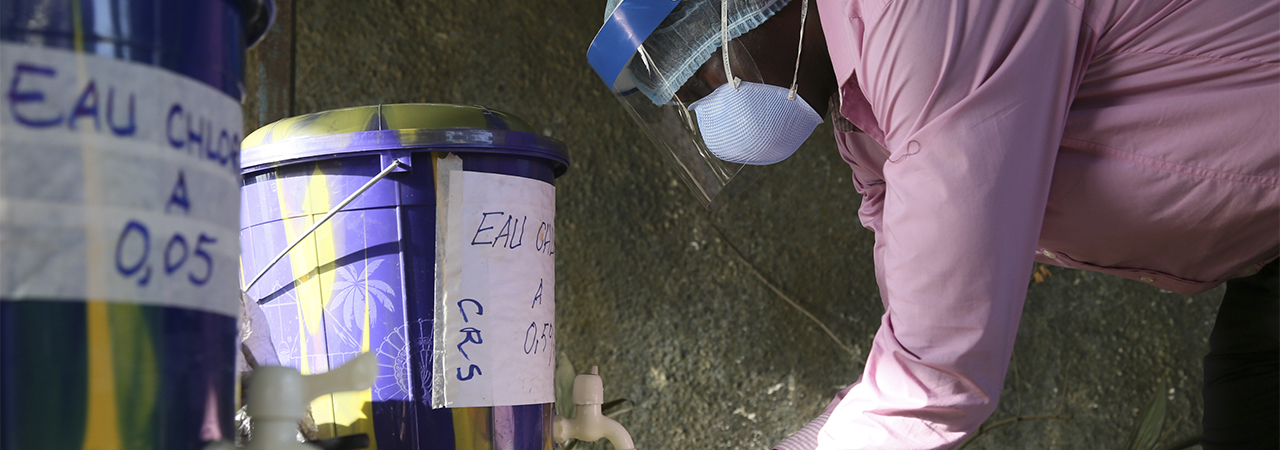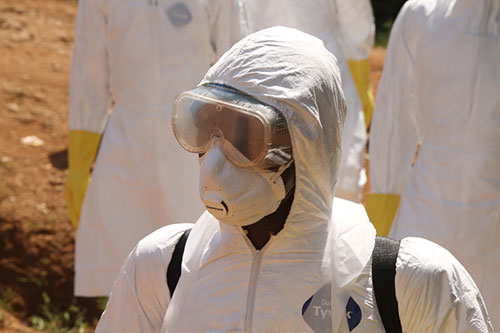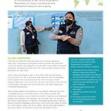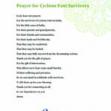

Ebola Outbreak: Call for Robust Response
Catholic Relief Services is continuing our ramped-up response to the deadly Ebola outbreak in West Africa by capitalizing on our long history in the region, and our broad community and Church networks.
The Ebola outbreak, which began last March, has killed more than 6,000 people. The World Health Organization predicts that transmission of the Ebola virus will continue for at least 9 more months, making a continued and robust emergency response critical to containing the outbreak. The crisis has already done wide-ranging damage, setting the affected countries' development progress back by at least a decade.
While reports indicate that the outbreak may be slowing in two of the three affected countries—Guinea and Liberia—Sierra Leone is experiencing an increase in the number of new infections.


- Routine health care
Ebola is straining already weak health systems in the region. To date, CRS has trained 3,000 health workers, provided personal protection equipment in Guinea and Liberia, and helped provide routine health care to an estimated 3 million people. We also supported the reopening of St. Joseph's Catholic hospital in Monrovia, Liberia's capital. The hospital offers routine health care, which has largely become unavailable due to stress on the health system. - Public awareness and education
Since the onset of the outbreak, we have worked to curb transmission of Ebola through programs that aim to educate people and change their behavior. CRS has used mass media, including radio and text messages, and trained religious leaders and volunteers to raise awareness and promote behavior change. - Livelihoods and food security
Agricultural activities, including this year's harvest, will be heavily impacted. Many farm families have lost productive members and some have been unable to access their farms due to travel restrictions and quarantines. CRS is building on our expertise to help affected families cope with and recover from loss of income and the impact of increased food prices. We are distributing food to affected families, orphans, widows, discharged patients and other vulnerable communities, and have reached more than 120,000 people to date. - Safe and dignified burials
Traditional burial practices have been a huge challenge to containing the Ebola outbreak. While washing deceased bodies is an important part of West African cultures, it exposes family members to infectious bodily fluids. In Sierra Leone, CRS is helping to manage thousands of safe and dignified burials in three districts to prevent further infections and respect families' religious practices. CRS is now expanding the program to Kenema, Sierra Leone's third-largest city. The agency is also collaborating with religious and traditional leaders to ensure access to, and acceptance of, safe and dignified burials. - Strengthening of health systems
Guinea, Liberia and Sierra Leone are among 83 countries that do not meet the WHO minimum recommended number of health care providers. Building strong health systems will require expert technical assistance to key stakeholders, including ministries of health, local technical organizations, civil society organizations and faith-based health networks. Faith-based institutions play a vital role in the health systems located in poor countries, and CRS has years of experience in strengthening these systems. To help fight the HIV pandemic, for example, CRS provided lifesaving HIV care and treatment services to more than 700,000 people through 276 health facilities in 10 countries by working largely through rural and faith-based facilities. - Urging Congress' support
CRS is calling on Congress to support emergency funding that commits $2.9 billion to fight Ebola in West Africa. We urge the U.S. government to lead the development and funding of a coordinated, long-term humanitarian and development strategy that rivals that of its HIV and AIDS response in scale and scope.
"We've seen the positive impact U.S. aid can have on the ground," says Bill O'Keefe, CRS' vice president for Advocacy. "But without sustained support from the U.S. Government, we could see a reversal in this trend."




